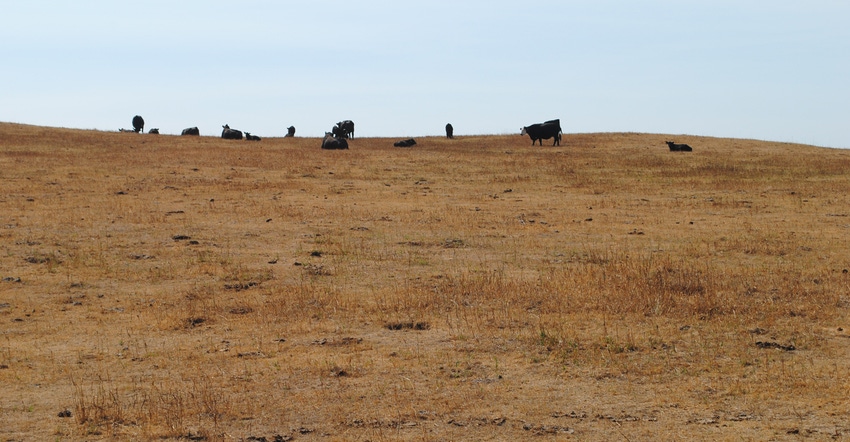August 25, 2022

In the late 1960s, especially in 1968, we completely dried out along West Bow Creek. My dad was milking around 60 cows that summer, and there were no ears of corn in any of our fields.
Feeding those milk cows became top priority, and it was a challenge. It had been a dry winter before that summer, and oats fields were all planted by mid-March, if not sooner. Heat came in early that year, and I can recall my parents hauling dry cows to pasture north into South Dakota that summer, because we had no forage around home.
That year was most memorable. My parents used to say that the only thing good that happened that summer was the birth of my younger brother, Paul, on Aug. 1. Through much of the early and mid-1970s, it was a lot like that around our place. The only moisture we received was hail. As a family, we would sit together in the late evenings on the porch swing and pray for rain.
One summer, when we actually picked up 0.70 inch of rain, we ran out into the puddles and splashed around. You don’t appreciate something like that until it is gone. And, thankfully, as difficult as it was, those prayers were answered, because we did find a way to get through those hard times.
Repeat in 2012
Back then, there wasn’t much irrigation in our neighborhood. Everything was conventionally tilled, and there was a lot more livestock. So, the impact of drought was even more devastating than it is now.
I experienced my own “1968” while farming in 2012. We had less than half of our normal precipitation that year, and the summer was full of “heat blasts,” where the temperature would suddenly rise nearly 20 degrees in a matter of minutes. That was the summer that I was forced to sell off most of our cow herd.
I’m not much of a crier, but I cried when they went through the sale ring. We had spent most of our farming years developing our herd. It wasn’t much to most folks, but those cows meant a lot to our family, and had provided healthy calves and needed income for many years. We didn’t have them named, but we knew each one.
Summer of drought
Fast-forward to this summer, and it reminds us of 2012 in more ways than we care to think about. If I needed any drought photos to go with some of our drought-related reporting, it wasn’t difficult to find file drought photos from 2012.
Having traveled across the state this summer, especially in the southwest, I have seen the pain of extended drought, not only in the dried and dead landscapes, but also in the eyes of producers.
First wildfires, then crazy derechos, followed by extreme hail and wind; it has been quite a year. Some portions of the state have received enough precipitation, but the drought gripping much of the state this past summer has hit a large swath of our readers.
As my dad used to say, “Drought is just a part of farming where we do. It always rains after a dry spell. Things even out.”
So, even as a little relief comes here and there, we continue to pray into this fall for needed moisture, for enough forage and grain to feed our livestock, for financial stability of our farms — and for the safety of everyone out in the fields this fall chopping forages, feeding livestock and harvesting the grain that is there.
Comments or questions. Drop me an email at [email protected].
You May Also Like




